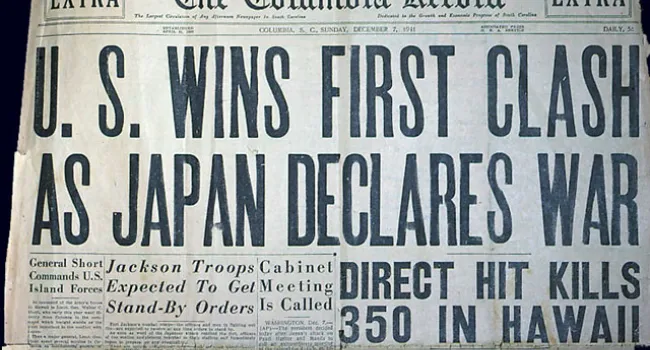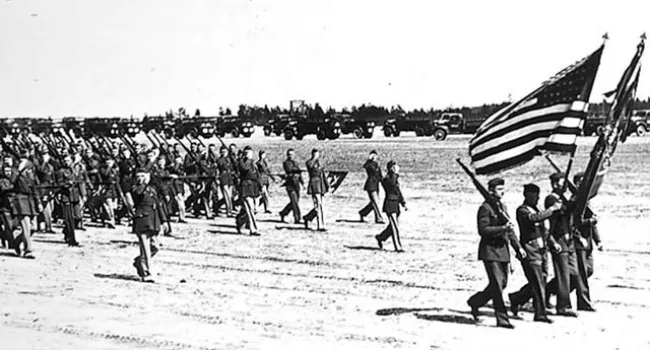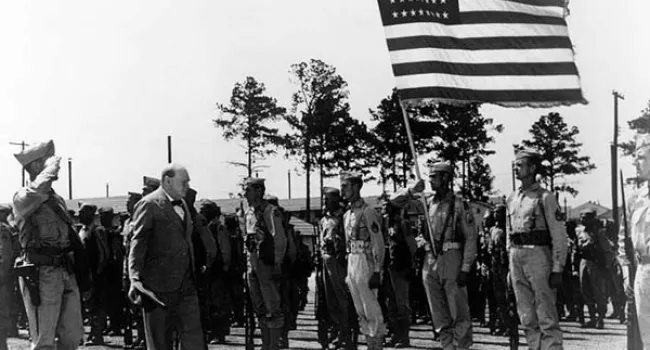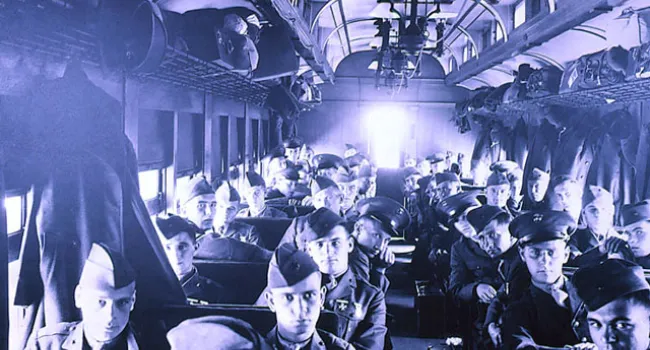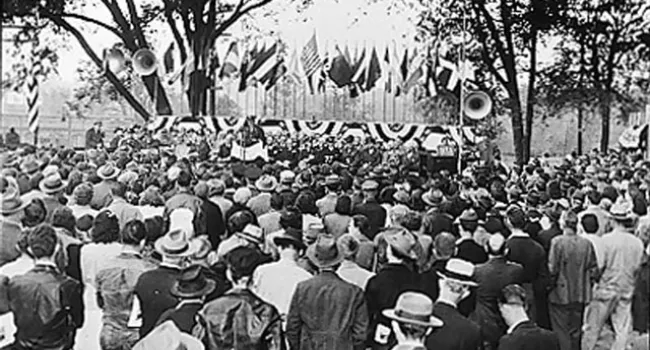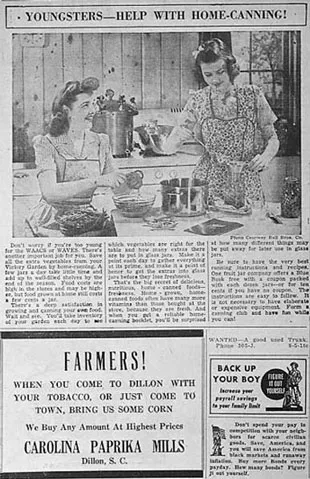
The Second World War, like the first, required sacrifice and work at home, as well as the commitment of soldiers fighting abroad. During the war, civilians were called on to conserve almost everything they used, to enable natural resources of every kind to be directed toward the war effort. Tires and gasoline were rationed, as were stockings (the silk and nylon from which they were made were needed to make parachutes), meat, sugar, flour and many other necessities of life. Even school-aged children were expected to participate. An important part of home-front activities was a combination of growing foodstuffs for export, and cutting down on domestic consumption of foods, so that more would be available to European civilians as well as to American troops. This August 5, 1943, advertisement in the Dillon "Herald" urges teenagers to learn to can homegrown vegetables as their part in the war effort.
Courtesy of the South Caroliniana Library.

